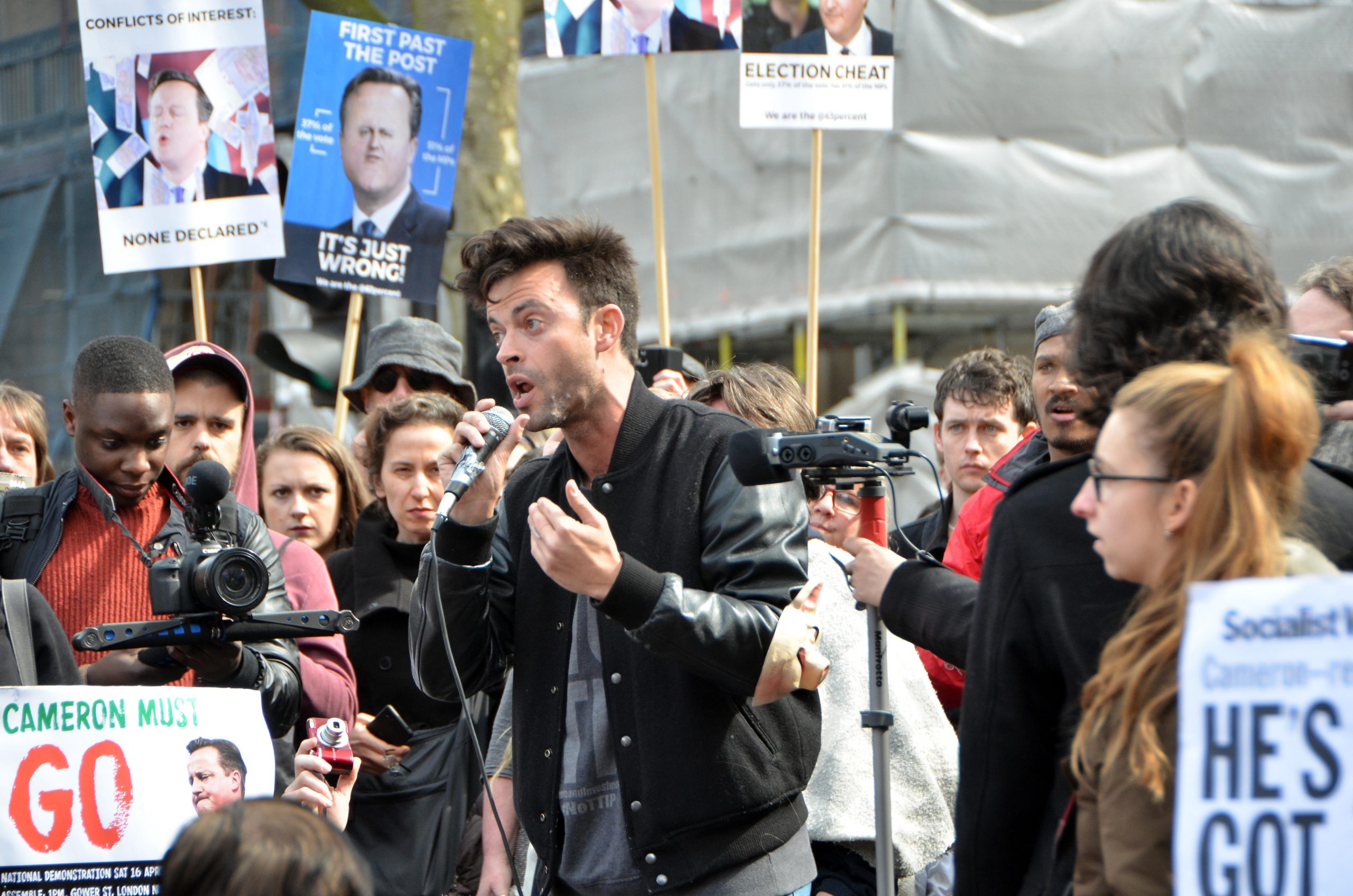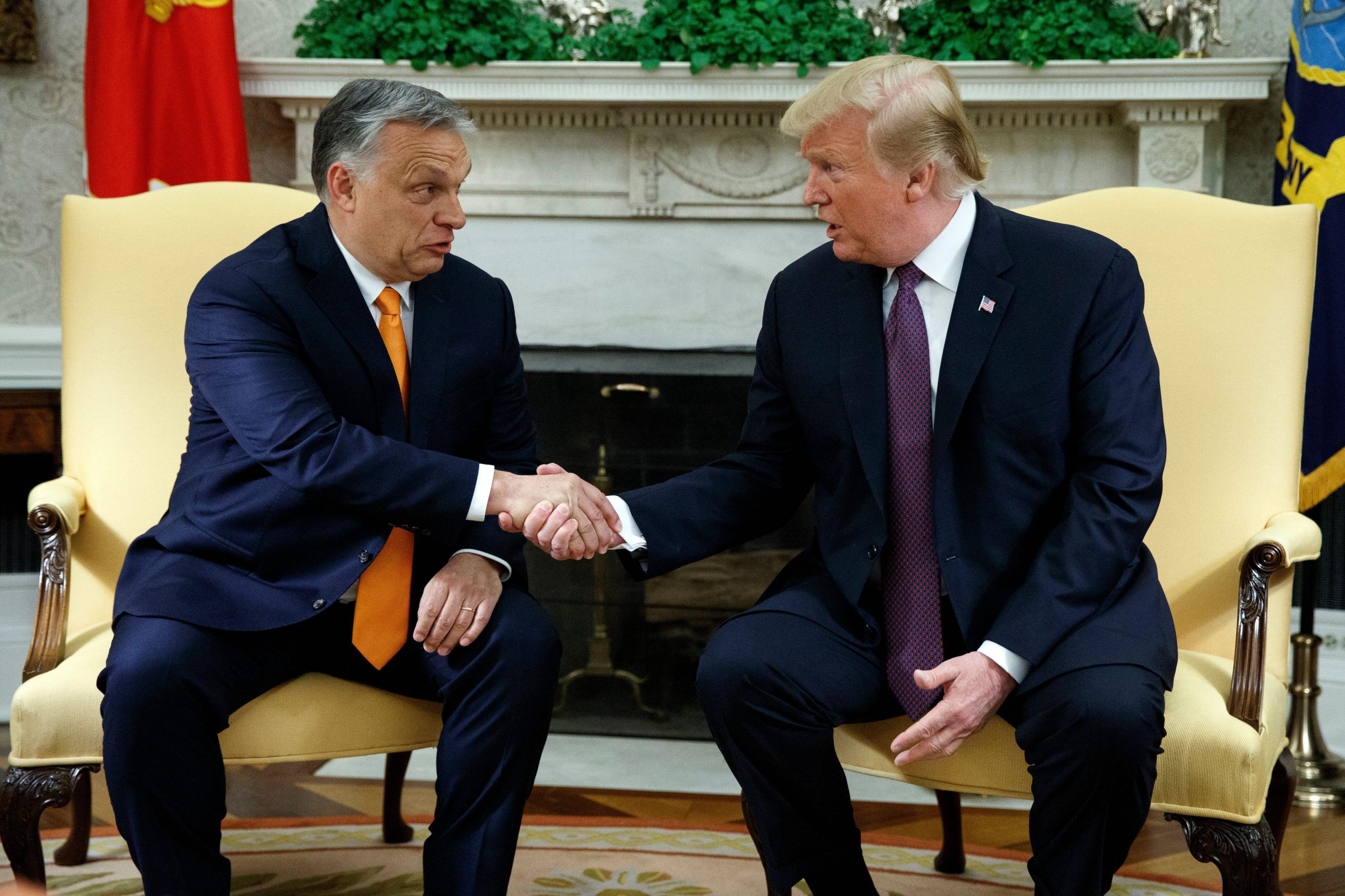[vc_row][vc_column][vc_single_image image=”117131″ img_size=”full” add_caption=”yes”][vc_column_text]
Picture the scene.
I’m driving a pick-up truck. I’m dressed in a high-vis jacket and white overalls and in the back is a tonne of manure. On the side of the pick-up is the logo “BS Industries UK”. We drive up to and block the front entrance to the Houses of Parliament, immediately drawing a bevy of armed police officers (or, as I like to call them, “supporting artists”) towards us.
“You can’t park here!”
I explain that this is “Grade A bullshit” and that “the MPs ran out of bullshit so they need a fresh batch to feed to the public”.
The prank, filmed in 2013 as part of the promotional campaign for the second series of our Bafta-winning BBC show The Revolution Will Be Televised, was an expression of that quintessentially British tradition of using satire as a tool of protest. Creative direct action dressed up as a comedy sketch, if you will.
For me there is nothing more British than using satire that laughs at the powerful, and that in a very minor way holds the powerful to account. But under clause 59 of the Police, Crime, Sentencing and Courts Bill which is going through the UK parliament now public nuisance is being criminalised and I could get 10 years in jail for such a prank! Ten. Years. In. Jail. I know that’s not the funniest joke but come on…!
History teaches us that things don’t change if the status quo is not disrupted and the intention appears to be to create an environment where you can make a lot of noise, as long as you stay in your lane, but where any movement deemed effective at changing hearts and minds and making a real difference is criminalised.
The passing of the PCSB in Parliament signals an active attack on this cornerstone of British democracy. Perhaps the significance of it is that freedom to speak truth to power without the fear of recrimination or criminal sanction is a British value as well as being a fundamental tenet of freedom of speech!
What does it feel like when the democracy you grew up in starts a gradual slide towards authoritarianism? Perhaps patriotism and flag-waving replace public debate. Perhaps the very fabric of public life starts to warp and change so that rational argument about policy is replaced by questions about how many national flags were printed on said policy paper. Perhaps the worse the state of the nation becomes, the more national greatness is invoked.
But what of those who question this new status quo? In societies where the ruling class wallows in corruption and enjoys total impunity, its enemies are a free press, and those who protest are criminalised. I’m not saying we are suddenly Myanmar. I’m not saying we are even Hungary. But maybe we are becoming Hungary-lite.
In a letter to the government in March co-ordinated by Liberty and Friends of the Earth, 245 organisations said the government’s proposals were cause for “profound concern”. The organisations highlighted numerous threats to our rights, including “draconian” police powers to restrict protests. The signatories represented a wide range of interests from Amnesty International to the Ramblers.
Hundreds of mainstream charities as well as groups such as Sisters Uncut, All Black Lives UK and Reclaim the Streets have committed to building a mass movement to resist the bill. But its protest and public order provisions could result in this very movement having its actions disproportionately criminalised for participating in peaceful activity. Even former prime minister Theresa May has voiced concerns over the proposed bill, insisting that the government has to walk a fine line between being “popular and populist”, and telling lawmakers that “our freedoms depend on it”.
It seems pertinent to ask if any amount of protest will be enough to stop the bill passing into law? The proposed law is indicative of a slide towards authoritarianism deeply at odds with the founding principles and traditions of the ruling Conservative party in the UK, and the democratic principles that many of us in the oldest democracy in the world hold so dear.
[/vc_column_text][three_column_post title=”You may also want to read” category_id=”8890″][/vc_column][/vc_row]





